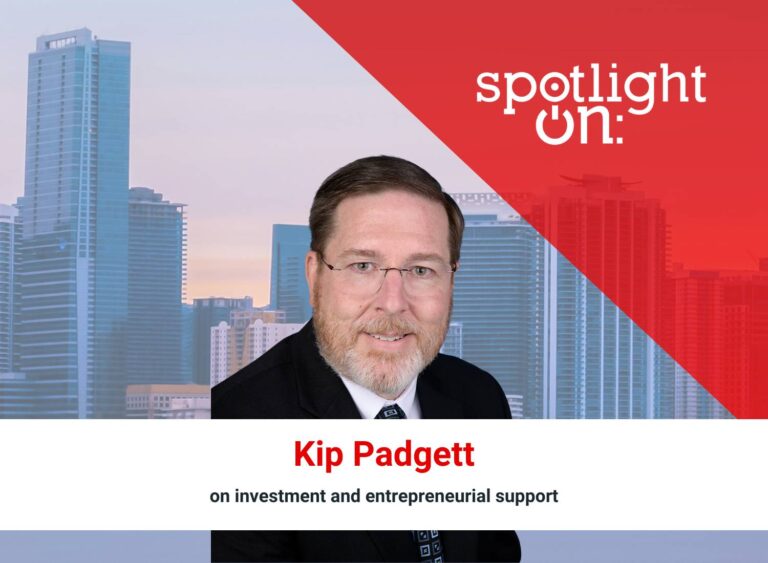Spotlight On: Marshall Crawford, President & CEO, The Housing Fund
 June 2022 — Invest: spoke with Marshall Crawford, president and CEO of The Housing Fund, and discussed the nuances surrounding affordable housing and how a growing awareness of disparities in the real estate market can bring more opportunities for people of color. “It’s important that we take a pragmatic approach and not just apply academic textbook methodologies,” he said.
June 2022 — Invest: spoke with Marshall Crawford, president and CEO of The Housing Fund, and discussed the nuances surrounding affordable housing and how a growing awareness of disparities in the real estate market can bring more opportunities for people of color. “It’s important that we take a pragmatic approach and not just apply academic textbook methodologies,” he said.
What motivated you to switch careers from the financial sector to running a nonprofit?
During my undergraduate studies I completed a senior thesis on the disparities in mortgage lending and I decided to go into banking so I could make a difference in this regard. The conclusion I reached was that there are “rules and exceptions to rules” when it comes to mortgage lending. My research spotlighted the fact that African Americans and other people of color were always told those rules of mortgage lending but we’re not privy to the exceptions. This was especially so with opportunities like down payment assistance, where there was such a huge awareness gap between Black and white populations. It became my goal to make sure these opportunities were available across the board; as I advanced in my banking experience, I realized my efforts were constrained by bank regulations.
Interesting enough, I eventually became a bank examiner, which gave me a better understanding of what it meant to run a financial institution and its regulation processes. Through this work I was introduced to the nonprofit sector and NeighborWorks America, a federally funded organization, which provides training, financial resources and technical assistance for nonprofit organizations across the country. It opened my eyes to the impact that the nonprofit sector can have on society and would allow me to expand my reach in a unique way. During my 13 year tenure with the organization, I had the opportunity to work with organizations designated as Community Development Financial Institutions or CDFIs. Now you could say the rest is history. By entering the nonprofit sector, I was able to align my expertise in finance and passion for equality in a more productive and outcome-oriented way.
How are increasing interest rates impacting efforts to grow affordable housing in the region?
With low interest rates, existing homeowners were able to refinance and utilize the equity in their homes to address financial needs and make home improvements. Unfortunately, the low interest rate environment made it a challenge for housing affordability due to the significant increase in home values. As interest rates increase, the demand for housing will slow in some markets, but the supply of affordable housing units will continue to be impacted and undoubtedly, affect low- and middle-income individuals. The people we serve are usually cost burdened before the topic of homeownership is even broached. Right now, people are more worried about the high gas prices and cost of goods and services. When they don’t have the cash to meet those needs, they turn to credit and that can have major impacts on their ability to borrow money for big purchases like a house or car. It’s important that we take a pragmatic approach and not just apply academic textbook methodologies. We have to be realistic about people’s needs and their desire to move on from the pandemic while managing inflation and increasing interest rates. The most important thing is that we remember these markets move in cycles and the ebbs and flows of housing prices will always be impacted in an increasing interest rate environment.
What is your outlook for the next three to five years?
I’m excited about the progress we are making around affordable housing. I recently heard someone indicate that “there is no magic formula” when it comes to housing affordability. While I can agree with that general perspective, I would add that some people benefit more from the “rules than the exceptions to the rules” as I noted earlier. I believe our progress in the region is attributed to what I consider the three Cs: consistency, collaboration and communication. There is a lot more consistency that is happening with affordable housing in Middle Tennessee. There is better collaboration between private, public, nonprofit and for-profit entities working together. Everyone is talking about and bringing awareness to the issue of the housing affordability crisis. The more you hear about it, the more people want to get involved. This has driven new leadership to the region. Amazon has invested over $75 million in affordable housing initiatives in transit corridors, so we have to establish new messaging around what affordable housing truly means. There is antiquated terminology that people can’t let go of that has created barriers for affordable housing.
We also have to stop making up the rules as we go along. That would establish more consistency in the way we collaborate and communicate. Regulations can help mitigate some of those barriers that exist and also some of the discrimination processes that have prevented people of color from taking advantage of those tax credits and resources. And while there is a lot of focus on rentals, we know wealth is created through homeownership. It’s one of the best assets anyone can own.
For more information, visit:
WRITTEN BY














